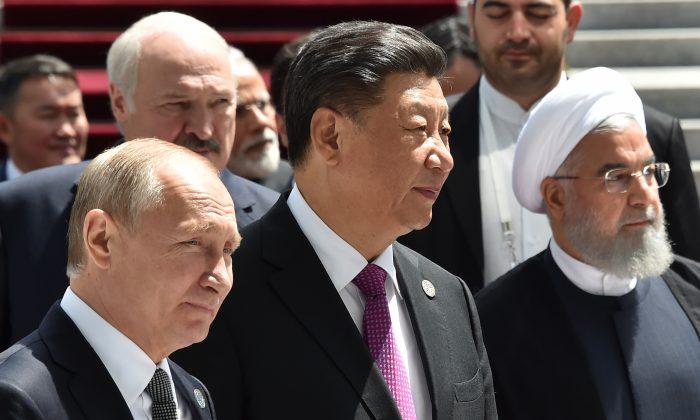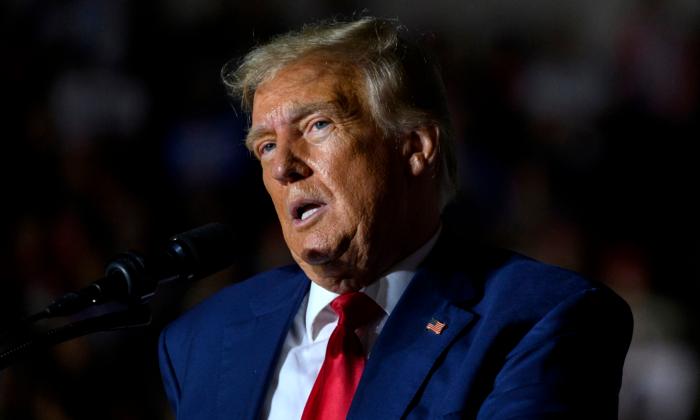Chinese leader Xi Jinping met with his Iranian counterpart on June 14, saying Beijing would promote ties with Tehran no matter how the situation changes, less than one day after the United States blamed Iran for an attack on two oil tankers in the Gulf of Oman.
Xi made the comment during a meeting with Iranian President Hassan Rouhani on the sidelines of the Shanghai Cooperation Organization summit in Bishkek, Kyrgyzstan, reported Chinese state-run media Xinhua.
Earlier, the United States charged that Iran was behind the attacks on the Norwegian-owned Front Altair and the Japanese-owned Kokuka Courageous near the Strait of Hormuz on June 13.
The U.S. administration has taken tough stances against Iran and China in recent months. Washington and Beijing are currently locked in a trade dispute launched by the United States last March in response to the Chinese regime’s unfair trade practices, including theft of U.S. intellectual property, forced technology transfer, and cyber theft of trade secrets.
“On April 22, Iran promised the world it would interrupt the flow of the oil through the Strait of Hormuz. It is now working to execute on that promise,” Pompeo said. The strait separates the Persian Gulf and the Gulf of Iran.
Iran has flatly denied the allegations.
President Donald Trump on June 14 blamed Iran for the attack, referring to the video released by the U.S. military.
One of the tankers was set ablaze during the attack as the U.S. Navy rushed to assist the stricken vessels near the Strait of Hormuz. Each tanker was loaded with petroleum products with one vessel, the Front Altair, burning for hours.
There have been conflicting accounts of the cause of Thursday’s blasts. An initial report that the Kokuka Courageous was struck by a torpedo was dismissed by a source who spoke with Reuters. The owner of the tanker, which carried methanol, later said it was hit by two “flying objects.”
Since Washington pulled out of a deal in 2018 between Iran and global powers that aimed to curb Tehran’s nuclear ambitions, Iran’s relationship with the United States and its allies, including Saudi Arabia, has worsened.
Trump responded to the attacks on June 13, arguing that now was not the right moment to make a deal with Iran, although he said he appreciated Japanese Prime Minister Shinzo Abe meeting with Iran’s leaders that same day.
“While I very much appreciate P.M. Abe going to Iran to meet with [Iranian leader] Ayatollah Ali Khamenei, I personally feel that it is too soon to even think about making a deal,” Trump wrote on Twitter. “They are not ready, and neither are we!”
Meanwhile, relations between the United States and the Chinese regime have also deteriorated since early May when Trump increased tariffs on $200 billion of Chinese goods in response to Beijing backtracking on commitments negotiated over months of trade talks.
China is Iran’s largest trading partner and top oil customer.
Iran has repeatedly warned it would block the Strait of Hormuz if it can’t sell its oil due to U.S. sanctions.





